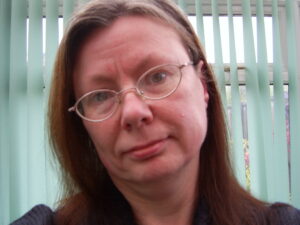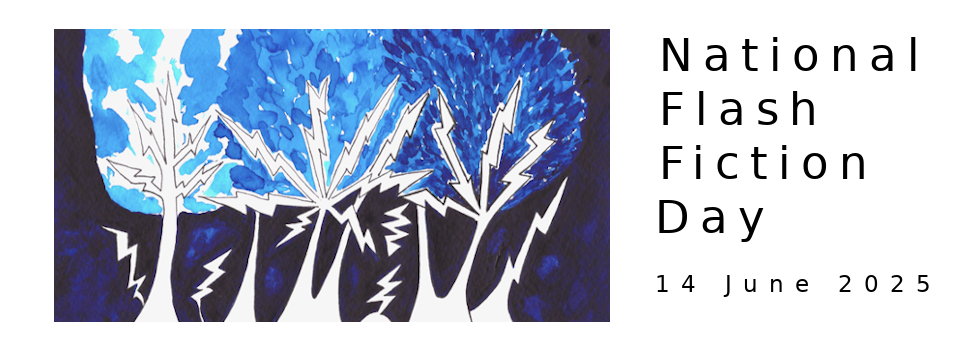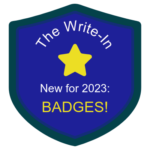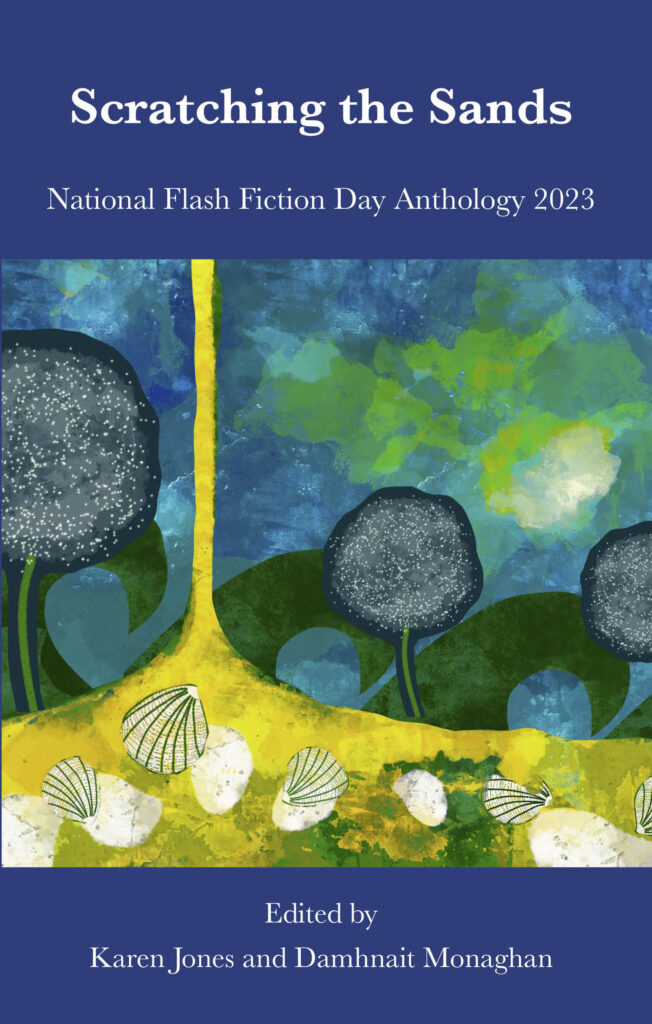With our submission window set to open shortly we'd like to take a moment to introduce you to this year's judging panel. This year, we're excited to announce that Sara Chansarkar, Jan Kaneen, David Rhymes and Alison Wassell will be doing it all: reading the submissions that come in, compiling a shortlist, and then deciding on the winning and highly commended pieces.
Our submission window opens on Friday 1 December 2023 and closes on Thursday 15 February 2024. We will be announcing results on or before 15 March 2024. We'll be reading flash of up to 100 words on any theme, but we are not able to consider simultaneous submissions this year.
For the 2024 competition, we will be awarding:
- £150 for first place
- £100 for second place
- £50 for third place
- seven awards of £20 for highly commended pieces.
All winning and commended pieces will be published online as well as in the 2024 National Flash Fiction Day print anthology and will receive one free copy of the anthology.
You can find our full submission guidelines here.
In the new year, we'll be posting interviews with our judges so you can get a better sense of what they're looking for, but in the meantime, you can read more about each of them below.
Huge thanks to our judges for taking on the 2024 NFFD Microfiction Competition and we look forward to reading your work!
 Sara Siddiqui Chansarkar is an Indian American writer. She is the author of Morsels of Purple and Skin Over Milk, and is currently working on her first novel. Her stories and essays have won several awards and have been published in numerous anthologies and journals. She is a fiction editor for SmokeLong Quarterly. More at https://saraspunyfingers.com, Twitter: @PunyFingers
Sara Siddiqui Chansarkar is an Indian American writer. She is the author of Morsels of Purple and Skin Over Milk, and is currently working on her first novel. Her stories and essays have won several awards and have been published in numerous anthologies and journals. She is a fiction editor for SmokeLong Quarterly. More at https://saraspunyfingers.com, Twitter: @PunyFingers
 Jan Kaneen writes sometimes prize-winning small and tiny fictions. Her memoir-in-flash The Naming of Bones was published in 2021 by Retreat West Books and her novella-in-flash A Learning Curve is on sale now from Ad Hoc Fiction. Hostile Environments, her unsettling short story collection, will be published by Northodox Press in 2025
Jan Kaneen writes sometimes prize-winning small and tiny fictions. Her memoir-in-flash The Naming of Bones was published in 2021 by Retreat West Books and her novella-in-flash A Learning Curve is on sale now from Ad Hoc Fiction. Hostile Environments, her unsettling short story collection, will be published by Northodox Press in 2025
 David Rhymes lives with his wife and children in a village near Pamplona in Navarra, Spain. He grew up in Nottingham and has a degree in English and American Comparative Literature from the University of Warwick and an MA in Creative Writing from the University of East Anglia.
David Rhymes lives with his wife and children in a village near Pamplona in Navarra, Spain. He grew up in Nottingham and has a degree in English and American Comparative Literature from the University of Warwick and an MA in Creative Writing from the University of East Anglia.
He is the author of two novellas-in-flash. The Last Days of the Union was published by Adhoc Fiction in 2022, and Monsieur, was winner of the Retreat West Novelette Prize in the same year.
His flash fiction has appeared in the Bath Flash Fiction, Reflex Fiction and Fish Publishing anthologies, and he has won prizes in the Bath Flash Fiction and Barren Magazine competitions. Other short listings include the Bridport, LISP, Desperate Literature and Smokelong Quarterly flash fiction competitions.
For more details, you might like to follow David on Twitter (@dsrhymes)
 Alison Wassell is a short story, flash and micro fiction writer from St Helens in Merseyside. Her work has appeared in several NFFD anthologies, Ellipsis Zine, Litro, WestWord, The Cabinet of Heed and The Phare. She has twice been shortlisted for the Bath Flash Fiction Award and, in 2022, was placed fourth in both the Summer and Autumn rounds of the Reflex Flash Fiction Competition. Alison also writes regularly for The People’s Friend magazine, which has published more than 50 of her short stories. She is passionate about very short fiction, and has no plans whatsoever to write a novel.
Alison Wassell is a short story, flash and micro fiction writer from St Helens in Merseyside. Her work has appeared in several NFFD anthologies, Ellipsis Zine, Litro, WestWord, The Cabinet of Heed and The Phare. She has twice been shortlisted for the Bath Flash Fiction Award and, in 2022, was placed fourth in both the Summer and Autumn rounds of the Reflex Flash Fiction Competition. Alison also writes regularly for The People’s Friend magazine, which has published more than 50 of her short stories. She is passionate about very short fiction, and has no plans whatsoever to write a novel.






